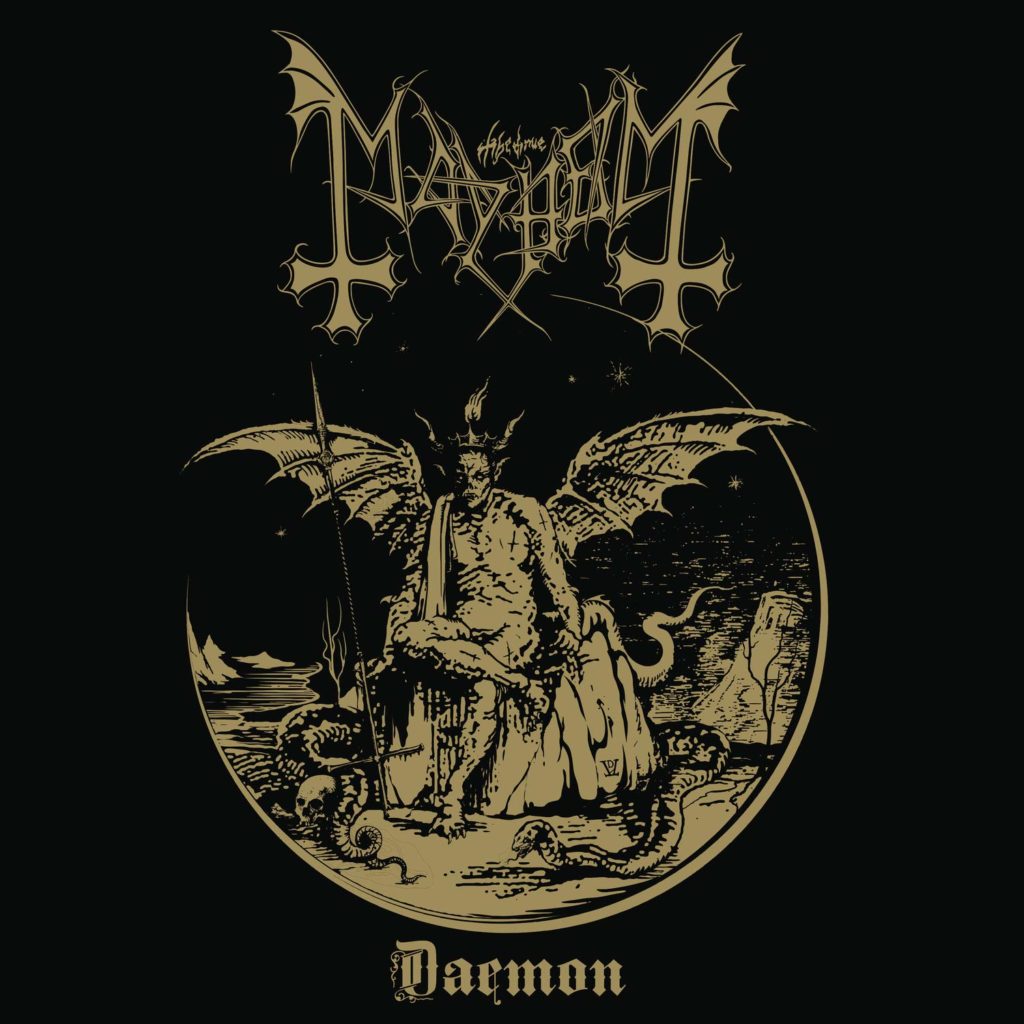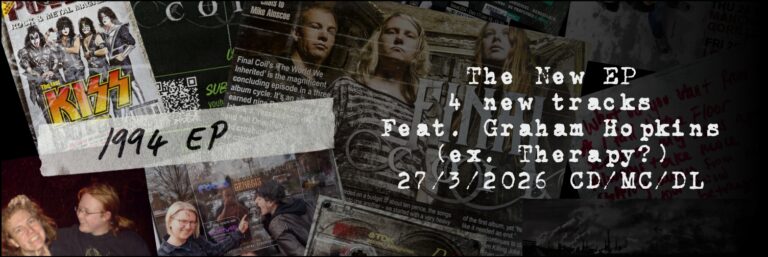
Sitting on my desk, next to Daemon, is a copy of the insanely lo-fi Live At Sarpsborg, left out from a little pre-Damnation preparation. Seeing these two, wildly different, releases next to one another is a stark reminder, both of Mayhem’s youthful excess, and of the band’s sonic evolution. Whilst, for some, Mayhem would be best left hermetically sealed in the wake of De Mysteriis Dom Sathanas, appreciation of the band’s early output does not preclude acceptance of their latter-day work, and Daemon, perhaps more than any other post-De Mysteriis album, is a compelling case for the band’s continuation. Produced by Tore Stjerna, alongside guitarist Teloch, Daemon has a grand symphonic sweep that is majestic and cinematic in equal measure, yet with a sense of diabolical purpose (further reinforced by the astonishing vocals of Atilla) that sees each of the album’s ten tracks (twelve, if you purchase the gorgeous digi-book edition) impress themselves upon your consciousness, never outstaying their welcome, but ensuring dominance. It is, without a doubt, the finest album to which Mayhem have put their name since that auspicious album and it showcases a level of artistry fully worthy of the band’s legacy.
Eschewing any sort of atmospheric build up, Mayhem unleash the imperial death march of The dying false king without warning. With Hellhammer comprehensively wrecking the kit, and Necrobutcher’s bass prowling the wastelands between the frozen riffs of Teloch and Ghul, it’s a potent introduction to the band’s first album in five years. Black metal, certainly, but with a richly textured production that provides the depth and clarity necessary for Attila’s vocal exhortations, The Dying False King sets the tone for the album and, when the band plunge into the icy waters of Agenda Ignis, the dark groove conjured by Necrobutcher’s bass provides the perfect antidote to the searing riffs with which it is surrounded. If Agenda… allows a certain amount of groove into proceedings, the ferocious whirlpool of hatred that is Bad Blood offers no such concessions, the band simply unleashing a toxic battery of stabbing guitars. However, Necrobutcher does make his presence felt, driving the track forward at a pivotal moment and allowing for a sense of grandeur to creep into the latter half that carries across into the magnificently weighty Malum, a slow-moving nightmare that allows Attila to explore a range of voices and vocal effects. One of the album’s darkest moments, riven with a sense of decayed might, Malum is immense, providing the album with its malignant core. In contrast, the raging Falsified and hated, which initially promises a blackened marathon, neatly wrongfoots the listener and devolves into slow-motion doom. The juxtaposition of icy riffs and sanguine bass is brutally effective, and it brings the first half of the album to a suitably atmospheric close.
Opening the album’s second half, the lengthy Aeon Daemonium is an epic that, despite its near-overwhelming weight, still allows for numerous sonic twists and turns which keeps things fresh and exciting. It’s notable that Mayhem never simply bludgeon the listener for the sake of it, preferring to coil and unleash the music at judicious moments in order to garner maximum effect. Worthless Abominations Destroyed opens with airy riffs, under which Attila’s eerie vocals create a dense drone. For all Hellhammer’s relentless percussive blasts, it proves hypnotic and the clean vocals, almost a monastic chant, only add to the aura of corrupted ritual that permeates the album. Another highlight emerges in the monstrous Daemon Spawn, a track with shades of Satyricon and early Dimmu Borgir wrapped up in the sense of majesty that surrounds it. Of Worms And Ruins is but a short, sharp shock, the band evoking a final, furious battle, which leaves them, in Invoke The Oath, fading to sepia as they stand proud in the ruins of a mountaintop church. It is a grand finale to an album that takes the listener on a threatening journey, and it brings everything neatly together, from the frantic assault of The Dying False King to the grandiloquent darkness of Malum.
If you have the chance, then the special edition is absolutely the version to purchase. Housed in a black slipcase with gold print; the hard-backed book contains expanded artwork (including photography form the excellent Ester Segarra) and lyrics. As an added bonus, fans purchasing this edition get two bonus tracks. The first, Everlasting Dying Flame is classic Mayhem with creeping bass, gargantuan riffs and a seemingly inhuman performance from Hellhammer behind the kit. It’s actually hard to believe the band left this off the regular edition, and there’s no question that fans will want to get hold of this stunning track if the opportunity presents itself. The second bonus track, Black Glass Communion is no less worthy. A multi-hued piece of music that sees Attila’s vocal range placed at the fore, it brings the special edition to a suitably impressive finale.
Imperious and inspired, Daemon is a masterful album fully worthy of Mayhem’s impressive legacy. There’s a real sense of scope here and the band’s musicianship is well-matched by the impressive production that keeps the guitars admirably raw whilst maintaining the space and separation to allow the nuances of Attila’s vocals to shine. This is, by any standard, an incredible addition to Mayhem’s cannon and highly recommended. 9



